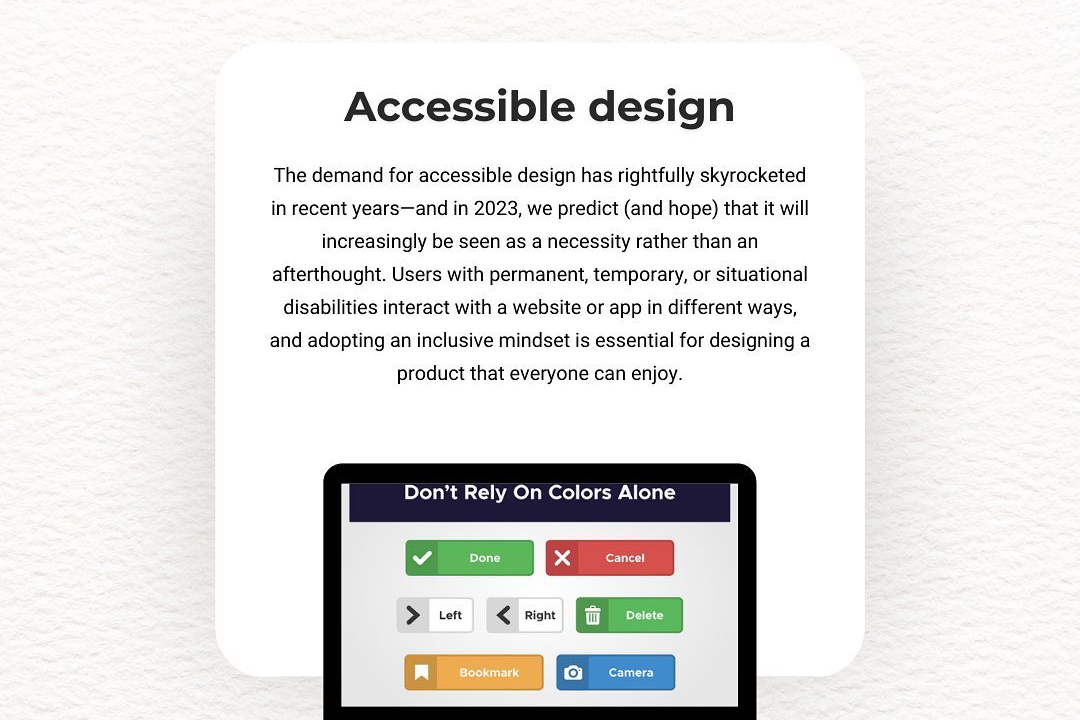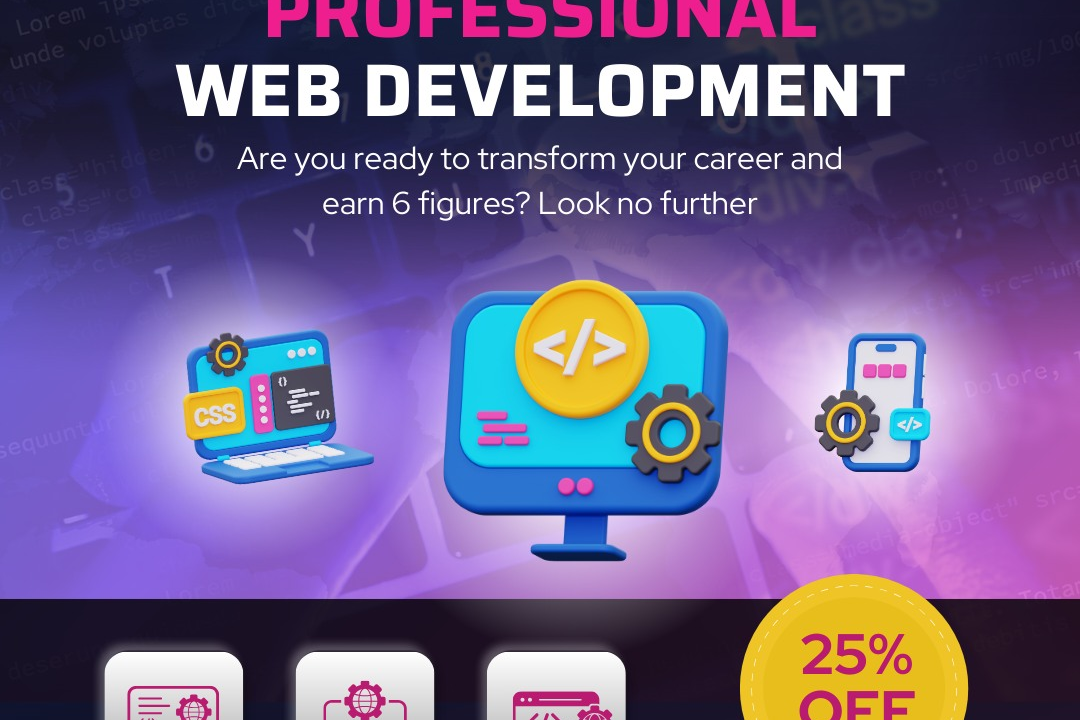How To Become Wordpress With No Php And Programming Knowledge
Creating a WordPress website without any PHP or programming knowledge is entirely possible thanks to
How To Become Wordpress With No Php And Programming Knowledge
Learning WordPress without PHP or programming knowledge empowers individuals and small business owners to create and manage professional websites with ease, saving time and costs associated with hiring developers. Its intuitive drag-and-drop interface, thousands of customizable themes, and plugins enable users to build feature-rich sites—such as blogs, portfolios, or e-commerce platforms—without coding skills. This accessibility makes website development more inclusive, allowing non-technical users to maintain and update their online presence independently, which is essential in today’s digital world where a strong online presence can significantly boost success.
To Download Our Brochure: https://www.justacademy.co/download-brochure-for-free
Message us for more information: +91 9987184296
Learning WordPress without PHP or programming knowledge empowers individuals and small business owners to create and manage professional websites with ease, saving time and costs associated with hiring developers. Its intuitive drag and drop interface, thousands of customizable themes, and plugins enable users to build feature rich sites—such as blogs, portfolios, or e commerce platforms—without coding skills. This accessibility makes website development more inclusive, allowing non technical users to maintain and update their online presence independently, which is essential in today’s digital world where a strong online presence can significantly boost success.
Course Overview
The ‘How to Become WordPress Expert with No PHP or Programming Knowledge’ course guides learners through building and customizing professional WordPress websites using user-friendly tools, themes, and plugins. It focuses on practical skills like site setup, design customization, and adding essential features, enabling students to create fully functional websites independently without any coding experience, making website development accessible for everyone.
Course Description
Learn to create and customize professional WordPress websites without any PHP or coding knowledge. This course covers easy-to-use tools, themes, and plugins, empowering you to build, design, and manage websites effortlessly through practical, hands-on training.
Key Features
1 - Comprehensive Tool Coverage: Provides hands-on training with a range of industry-standard testing tools, including Selenium, JIRA, LoadRunner, and TestRail.
2) Practical Exercises: Features real-world exercises and case studies to apply tools in various testing scenarios.
3) Interactive Learning: Includes interactive sessions with industry experts for personalized feedback and guidance.
4) Detailed Tutorials: Offers extensive tutorials and documentation on tool functionalities and best practices.
5) Advanced Techniques: Covers both fundamental and advanced techniques for using testing tools effectively.
6) Data Visualization: Integrates tools for visualizing test metrics and results, enhancing data interpretation and decision-making.
7) Tool Integration: Teaches how to integrate testing tools into the software development lifecycle for streamlined workflows.
8) Project-Based Learning: Focuses on project-based learning to build practical skills and create a portfolio of completed tasks.
9) Career Support: Provides resources and support for applying learned skills to real-world job scenarios, including resume building and interview preparation.
10) Up-to-Date Content: Ensures that course materials reflect the latest industry standards and tool updates.
Benefits of taking our course
Functional Tools
1 - WordPress.org Dashboard – The central hub for website management, the WordPress dashboard offers an intuitive interface where students can easily manage content, install themes and plugins, and customize their site layouts without any coding. It provides a user friendly environment, guiding learners through overall website control and updates, making the process accessible even for absolute beginners.
2) Elementor Page Builder – A drag and drop website builder plugin that allows students to design visually appealing pages effortlessly. With its intuitive interface, users can choose from pre designed templates, add elements like images, text, buttons, and videos, and arrange them precisely without writing any code. This tool significantly reduces development time and enhances the creative process for learners.
3) WooCommerce Plugin – For students interested in creating online stores, WooCommerce provides a comprehensive e commerce solution integrated seamlessly within WordPress. It simplifies setting up product pages, managing shopping carts, and processing payments through user friendly interfaces, enabling learners to establish fully operational online stores without technical complexities.
4) Theme Customizer – Built into WordPress, this tool offers customization options for website appearance such as layouts, color schemes, fonts, and header styles. Students can preview changes in real time, ensuring their website aligns with their branding preferences. It allows for extensive personalization without requiring knowledge of CSS or PHP.
5) Plugins Repository – The official WordPress plugin repository offers thousands of plugins to extend website functionality. Students learn how to search, install, activate, and configure plugins like SEO tools, contact forms, social media integrations, and security features, boosting their website’s features with minimal effort and technical expertise.
6) WPBakery Page Builder – An alternative drag and drop page builder that simplifies designing complex page layouts through a visual interface. This plugin provides a variety of content elements and templates, enabling students to create professional looking pages without coding, and customize their website’s design according to their specific needs.
7) Contact Form 7 – A widely used plugin for creating customizable contact forms that facilitate communication between website visitors and owners. Its user friendly interface allows learners to add forms to their sites, configure email responses, and manage submissions easily, all without programming.
8) Yoast SEO Plugin – A powerful tool that guides students through optimizing their website for search engines. It offers real time SEO analysis, keyword optimization, and readability checks, helping learners improve their website’s visibility without technical SEO knowledge, ensuring better organic reach.
9) WP Super Cache and Security Plugins – Tools like caching plugins improve website load times, enhancing user experience, while security plugins protect the site from malicious attacks. These tools help students learn how to maintain a fast, secure, and reliable website, essential for professional online presence.
10) Google Analytics Integration – Students are guided on how to connect their website with Google Analytics using plugins, enabling them to monitor visitors, understand user behavior, and make data driven decisions. This integration requires no coding and offers valuable insights to optimize website performance.
11 - Favicon and Logo Uploader – Simple tools within WordPress that allow students to upload and customize site icons and logos, reinforcing branding. These features are accessible through the theme customizer and media library, emphasizing branding consistency without requiring graphic design skills.
12) Site Backup and Migration Tools – Plugins like UpdraftPlus help learners set up automatic backups and easy site migration, teaching them how to safeguard their website data effortlessly. These tools are vital for maintaining website integrity and ensuring smooth recovery or transfer processes.
13) Cloud Storage and Media Management – Integration with cloud services allows students to upload, store, and manage media files easily. With Drag and Drop media upload features, learners can add images, videos, and audio files without navigating complex media libraries or requiring FTP access, streamlining content management.
14) Content Scheduling Tools – The built in WordPress publishing system enables users to schedule posts and pages in advance. This feature helps students plan content strategy, automate updates, and maintain fresh content regularly, fostering consistent engagement without manual intervention.
15) Multilingual Plugin Support (e.g., WPML) – For students aiming at a global audience, multilingual plugins enable easy translation of website content. These tools typically provide user friendly interfaces to create multilingual sites, expanding reach without the need for programming.
16) SSL Certificate Integration – Easy options to enable HTTPS through plugin integrations, ensuring secure data transmission. Students learn how to implement SSL certificates within the hosting or via plugins, safeguarding user information and building trust with visitors.
17) Social Media Integration Plugins – Tools that allow seamless embedding of social media feeds, sharing buttons, and follow widgets. This integration boosts online engagement and simplifies promoting content across social platforms without coding.
18) Website Analytics and Feedback Tools – Plugins that incorporate survey forms or visitor feedback options help learners gather valuable insights about user preferences. These tools are easy to implement and modify, enabling continuous website improvement based on user data.
19) Content Management and Editing Tools – The block editor (Gutenberg) within WordPress simplifies content creation with easy to use blocks for text, images, videos, and more. Students can format, rearrange, and manage content visually without any programming knowledge, making updates quick and flexible.
20) Live Customizer Preview – A real time preview feature within the WordPress theme customizer enables students to immediately see how changes to colors, fonts, layouts, and widgets will look on their website. This interactive tool helps learners make confident design decisions without multiple refreshes or technical steps.
21 - Breadcrumbs Navigation Plugin – Implementing breadcrumb navigation improves site usability by showing visitors their current location within the website hierarchy. Students can easily add and customize breadcrumbs, enhancing user experience and SEO performance.
22) Lazy Loading Plugins – Tools that delay the loading of images and videos until they appear in the viewport help optimize page load speeds. Learners understand how to incorporate lazy loading to improve website performance, especially important for mobile users and search engine rankings.
23) SEO Friendly URL Permalinks – WordPress allows customization of URL structures to make links more descriptive and optimized for search engines. Students learn how to configure permalinks properly, enhancing their website’s visibility in search results.
24) Custom Post Types and Taxonomies – Advanced content organization features that enable students to create new content types such as portfolios, testimonials, or FAQs, and categorize them effectively. These tools help tailor website structure to specific business or educational needs.
25) Widget Management and Sidebar Customization – Easy to use widget areas allow students to add various functionalities like recent posts, popular articles, social media feeds, and more, to sidebars or footer areas, enhancing content accessibility and engagement.
26) Page Speed Optimization Plugins (e.g., W3 Total Cache) – These tools help students analyze and improve website loading times through caching and minification techniques, contributing to better user experience and SEO.
27) Accessibility Tools – Plugins that enhance website accessibility for users with disabilities, such as screen reader support and adjustable font sizes. Students learn how to build inclusive websites that cater to all users.
28) Schema Markup Integration – Tools that add structured data to website content, helping search engines better understand the site’s information. Learners can improve their site's rich results appearance and click through rates.
29) Automated Image Optimization Plugins – These plugins compress and optimize images automatically during upload, reducing site load time without sacrificing quality. Students discover best practices for multimedia management and performance.
30) Membership and Login Plugins – For courses or exclusive content, students can set up membership areas with login controls, restrict access, and manage user subscriptions, expanding website functionality for various business models.
31 - Email Marketing Integration – Plugins that connect the website with email marketing services like Mailchimp or Constant Contact, helping learners build mailing lists and automate communication directly from their site.
32) Multi language Support and RTL Styles – Tools enabling website localization with support for right to left scripts and multiple languages, preparing students to create globally accessible multilingual websites.
33) Content Revision and Version Control – Features that allow tracking of content changes over time, reverting to previous versions, and managing content workflow, ensuring quality and consistency in website updates.
34) Firewall and Security Monitoring – Advanced security plugins that monitor and block malicious activities, protect against spam, and alert users of vulnerabilities, teaching students how to maintain a secure online presence.
35) Custom CSS and JavaScript Editing Tools – For students interested in further customization, integrated editors allow direct modification of code snippets to tweak styles or functionalities beyond default options.
36) Integration with Cloud Portals (e.g., Google Drive, Dropbox) – Easy media and document management through cloud storage integration, streamlining content updates and backups.
37) Automated Social Sharing – Plugins that automatically share new content across social media channels, maximizing outreach and engagement seamlessly.
38) E mail Notification and Subscription Management – Tools that enable visitors to subscribe to newsletters or receive updates, helping students grow an engaged audience and maintain contact.
39) Payment Gateway Support – Easy integration of multiple payment methods like PayPal, Stripe, or Square, to process transactions smoothly for courses or services offered.
40) Multisite Management – Features that allow managing multiple websites from a single dashboard, enabling scalable online presence for various courses, brands, or departments within JustAcademy.
41 - Documentation and Help Plugins – Embedding tutorials, FAQs, and knowledge bases directly into the website, providing self help resources for students and visitors.
42) Progress Tracking and Gamification Elements – Integrating plugins that allow students to track their course progress, earn badges, or complete quizzes, enhancing learning engagement and motivation.
43) Performance Analytics Dashboards – Custom dashboards that aggregate website data, user engagement metrics, and course completion statistics, empowering students and administrators with actionable insights.
44) Automated Content Backup and Restoration – Scheduled backups with easy restoration options ensure the safety of website data, minimizing downtime or data loss risks.
45) Cookie Management and GDPR Compliance Tools – Plugins that assist in complying with data privacy regulations by managing cookies, informing visitors of data collection, and providing consent mechanisms.
These tools and features enable students to develop professional, secure, and performance optimized websites, aligning with their specific needs and learning goals through JustAcademy.
Browse our course links : https://www.justacademy.co/all-courses
To Join our FREE DEMO Session:
This information is sourced from JustAcademy
Contact Info:
Roshan Chaturvedi
Message us on Whatsapp: +91 9987184296
Email id: info@justacademy.co
Advanced Php Programming Pdf Download











